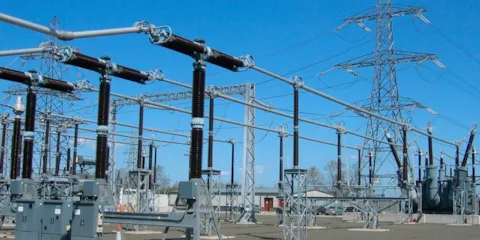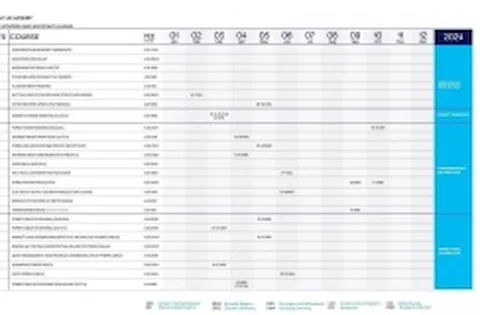Network Asset Management in practice training course
This 3-day training course provides insight into modern network asset management, familiarises you with the concepts and practices of risk management and risk-based decision-making, provides a clear picture of the processes, methods and tools, and teaches you how to apply modern asset management concepts in the day-to-day practice of a (transmission or distribution) network company.
Balancing asset performance, costs and risks in a changing environment.
Electrical network operators are responsible for delivering high service quality at controlled cost levels, while keeping risks within acceptable boundaries. They need to cope with ageing assets and workforce and changing requirements of efficiency and transparency. At the same time they are also confronted with today’s challenges: the energy transition, the growth of renewables and ongoing electrification. How can asset managers keep the balance, technically and economically, safeguard business values and satisfy stakeholder interests?
Asset management has moved up the agenda of today’s utilities. A new standard (ISO 55000) was issued in 2014. But next to embracing a standard, successful asset management requires a transparent risk framework, and risk-based decision processes and project portfolios, supported by reliable data and adequate information systems. It requires continuous monitoring and improvement, and a change of mindset, embracing new habits (and letting old ones go).
Subjects:
■ Asset management trends and models
Challenges, developments, standards, models
■ The strategic asset management plan (SAMP)
From trends and stakeholder values to strategic plans
■ The risk management framework
Risk metrics and risk matrix, risk criteria & appetite
■ Risk-based decision making
Risk identification, analysis of probability and impact, mitigation, prioritization, portfolio
■ Risk analysis techniques
Statistical analysis, failure mode analysis, health & risk indexing
■ Decision making applied to practice
Policies, programs, projects, lifecycle management
■ Portfolio management tools and practices
Ranking, optimization, prioritization, portfolio, planning
■ Monitoring and corrective action
Feedback and response, continual improvement
■ Asset management systems and tools
AM systems, information & IT systems, digitalization
■ Asset management implementation
Gap analysis, roadmap, process & culture, pilots
Your benefits
After this training you will have a better ability to:
■ Understand modern network asset management and recognise the strengths and weaknesses of your operation/ organisation
■ Recognise and analyse risks, make risk-based decisions, and optimise and apply the supporting processes, methods and tools
■ Apply modern asset management concepts in the day-to-day practice of a transmission or distribution network company
Target audience
Asset owners, asset managers, technical managers, maintenance managers, consultants, regulators, policymakers and other professionals working for network operator companies, consultancy firms, large industries or governmental organisations.
This course is only available on request in English or Dutch (course content, location and duration can be adapted to your specific wishes). Please contact us for more information.


